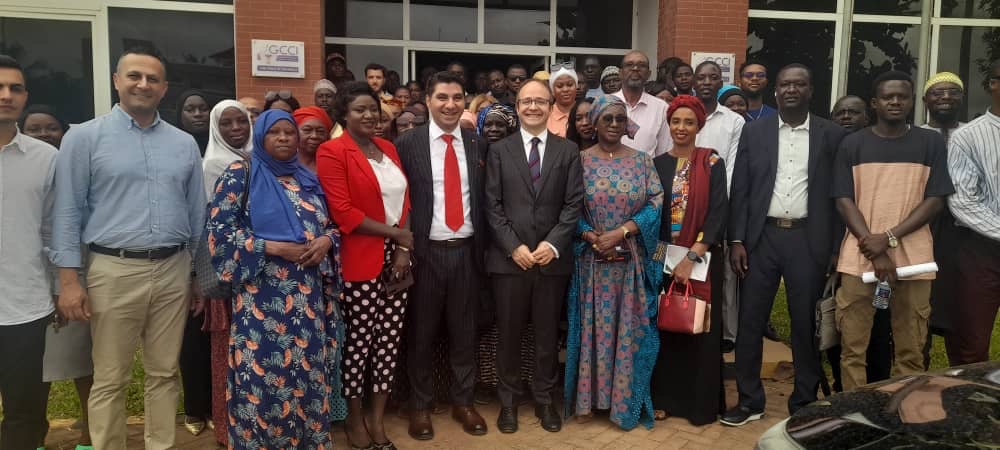By Yunus S Saliu
Girls’ Pride organization last weekend wrapped up a weeklong training with one hundred and sixty young teachers drawn from 75 different schools across the regions in The Gambia.
The one hundred and sixty teachers were trained on menstrual health and hygiene management, period shaming and gender based violence and as well provided with training materials for each of the areas they were trained. The weeklong training was considered as training of trainers held in Upper River Region, Central River Region and Lower River Region.
The goals of this training activity aligned with SDG 4: Quality Education, and SDG 5: Gender Equality.
According to Fatoumatta Jabbi-Kassama, Founder and CEO of Girls’ Pride, the training was meant to end period poverty in schools and communities.
“To achieve this, teachers were trained on menstrual hygiene management, period shaming, and gender-based violence. And Girls’ Pride believes that by empowering teachers with the right knowledge, and skills they will be able to teach many boys and girls in their various schools and they will also use their influence in their local communities to educate community members,” she stated.
She explained that period poverty affects girls’ education in many ways and when girls lack sanitary pads, knowledge on how to take care of themselves during their periods, or lack sanitation facilities in their schools, they are unable to stay in school and learn.
Madam Jabbi-Kassama went on that majority of girls from low-income families missed 3 to 5 days out of school during their periods every month which leads to poor performance and eventually some girls will drop out of school. “They are faced with lifetime consequences such as forced/child marriage, FGM, teenage pregnancies, anxiety, depression, or suicidal thoughts. As they grow older, some are at a higher risk of reproductive health problems like STI, HIV & AIDS, obstructed labor, and maternal death,” she added.
Simple interventions, she noted, such as training of teachers, community sensitization activities on menstrual hygiene management, period shaming, and gender-based violence with provision of sustainable and eco-friendly sanitary pads can keep the girls in schools, give them the opportunity to achieve their dreams and realize their full potentials and contribute to economic growth.
At the end of the weeklong training, Girls’ Pride used drama, group work, and group presentations to evaluate the teachers and ensure that they understood what was taught.
However, the trainees, upon returning to their various schools they conduct step-down training to educate their students on menstrual health, period shaming, and gender-based violence. They also want to train members of their school drama clubs and peer health educators on how they can use drama, poetry, and songs to help their schoolmates, parents, and community members understand issues around period poverty, gender-based violence, and how it affects girls’ education, their health and The Gambia’s economy at large.
This activity was funded by the Italian Agency for Development Cooperation through UNFPA-The Gambia and Network Against Gender-Based Violence.
Madam Jabbi-Kassama thanked the donors, partners, MoBSE, Gender-unit at MOBSE, Regional Directors, and Regional teacher Facilitators for their support and all the teachers for their participation.





